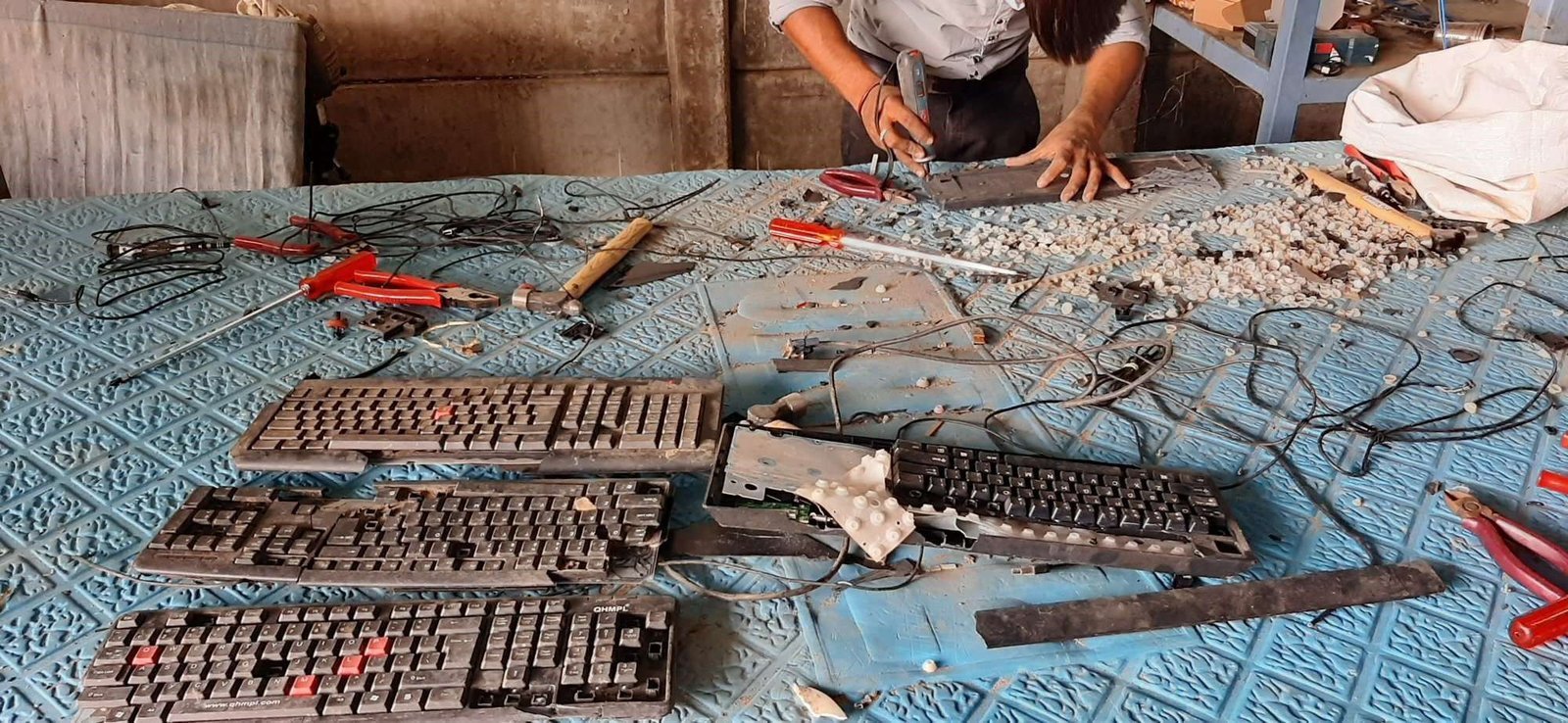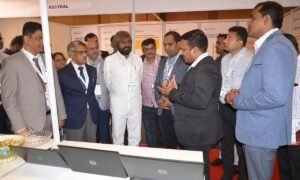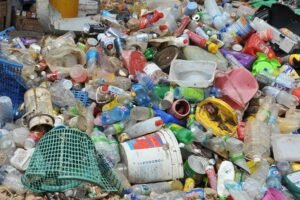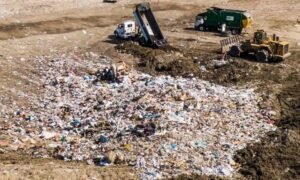In India, more than 90% of e-waste is handled by the informal sector. While this provides income for many families, it also often has a negative impact on the environment and on workers’ health. Introducing and enforcing standards is difficult because of the investments and complex administrative procedures involved.
This is where Ecowork, a project financed by the Swiss National Science Foundation and Innosuisse through their BRIDGE programme, comes in. It aims to develop a novel and legal business model based on the principle of co-working for micro-entrepreneurs – a process initiated by an Indo-Swiss team that includes Empa environmental researcher Dea Wehrli. As specialist in e-waste recycling, she already has some experience of India. "The Ecowork Space is intended to become a kind of incubator hub and integrate entrepreneurs into the formal value chain. This involves drawing on Empa's valuable knowledge and many years of experience in e-waste recycling."
Tools and protective equipment
Ecowork is designed for micro-entrepreneurs who have neither investment capital nor formal experience of managing a company. It is currently being set up and tested in Delhi and is expected to provide jobs for around 40 interested people in its first year. While working with Ecowork, the micro-entrepreneurs will retain their autonomy. At the same time, they will have access to various services to help them expand their market, work more efficiently and increase their earnings. "We are offering them a business model made up of various elements. Entrepreneurs will be able to rent a safe and legal workplace," explains the scientist. "They will have access to tools and protective equipment, more efficient working procedures, infrastructure and a legal working environment. We will also be offering them assistance with administrative processes and training."
Apps improve impact
Some of the solutions offered by the business model are digital – such as an app that allows the entrepreneurs to work together as a network. “A worker who salvages a small amount of material by dismantling a laptop can amalgamate his output with a neighbour’s – by using the app – and offer a greater volume for sale. Since buyers are more attracted to bulk, the entrepreneurs get a better price,” Dea Wehrli explains.
Dea Wehrli cannot wait to see the results. "E-waste is a global issue. Switzerland has the expertise, and I think we have a responsibility to get this knowledge out of academic circles by helping to improve the environmental and social situation in the recycling sector in India – not least because we could use this solution in many other countries if it proves beneficial."
Source: =”https://www.snf.ch/en/o8I6Qgn0R4gUwLZp/news/india-using-co-working-spaces-to-recycle-e-waste-sustainably” target=”_blank” rel=”noopener”>https://www.snf.ch/en/o8I6Qgn0R4gUwLZp/news/india-using-co-working-spaces-to-recycle-e-waste-sustainably














Add comment